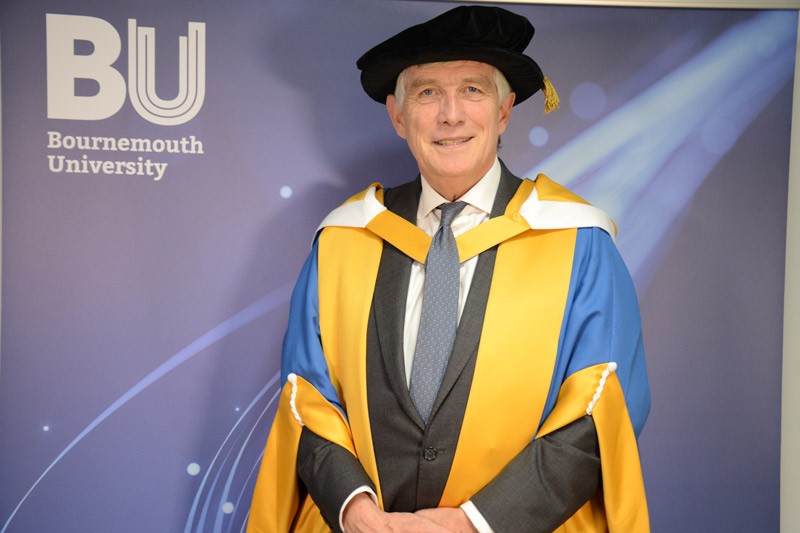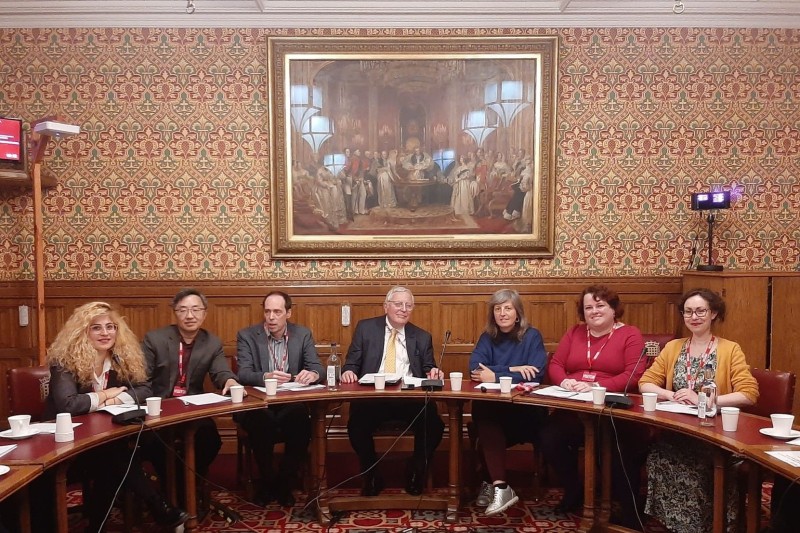By Dr David McQueen, Lecturer in Advertising & Media
Today is Democracy Day and broadcasters are celebrating the day by exploring the history of democracy, but also re-examining the rapidly shifting sands of political engagement, party politics and the popular vote. The UK election on 7 May 2015 is less than four months away and the sense of uncertainty about the outcome grows with every passing week.
As NUS President Toni Pearce has noted there are 197 seats across the country where the sitting MP has a majority of ten per cent or less. In nearly all of these seats the number of students living there is larger than the five per cent swing required to lead to a change of hands entirely. So the student vote matters in this highly unpredictable multi-party horserace.
A debate on the Today programme this morning led by Radio 4's Public Philosopher, Professor Michael Sandel at the Palace of Westminster, underlined the lack of trust and disempowerment felt by many voters. Professor Sandel pointed out that in a recent survey 83% of the public trusted doctors, 73% trusted teachers, but only 20% trusted leading politicians, with the figure rising to 35% for local MPs. The generational dimension of this issue was underlined by something of a row between younger speakers who understood the disaffection with the system - and older voters who insisted it was a matter of choice and that if we don’t vote we can’t complain.
Another development where the young vote counts is in the rise of previously marginal parties. A YouGov poll in December found that the Green party was at 22% among 18-24 year-olds – tied with the Conservatives for second place. Last week membership of the Green Party across the UK overtook that of both UKIP and the Liberal Democrats and many in the Green Party must be secretly thanking the regulator Ofcom for arguing in its provisional judgement on the Leadership Debates that their party is not a major party.
The ‘Green Surge’, as they are calling it, has astonished long-term Green Party activists like Adam Ramsey who wrote last Thursday: “In 2003, there were around 5,000 signed up Greens across the UK. That’s about the same number as has joined this week.”
This development echoes the political earthquake in Scotland in 2014, which came closer than anyone dared imagine to ending the Union, and which witnessed Scottish Nationalist Party (SNP) and Green membership in Scotland, especially amongst young people, soar after the final ‘No’ vote. The decision to also exclude the SNP from the debates but include UKIP seems even more bizarre. The SNP holds power in Scotland and is likely to return more Westminster MPs than all the other parties north of the border combined and may well hold the balance of power. UKIP, by contrast, has just two MPs and no real presence outside England.
With anti-austerity and traditional left of centre parties effectively excluded by Ofcom’s decision, the impression that Ofcom and terrestrial television broadcasters are hopelessly close to the Westminster ‘Establishment’ can only be further reinforced. This can only fuel political disengagement, especially amongst younger voters.
Ofcom’s only hope of rescuing the television debates is to radically reshape them to suit the reality of contemporary politics. To maintain trust in the political process, Ofcom should respond to the petition signed by nearly 280,000 people calling for the Greens to be included in one of the debates. To maintain trust amongst the Scottish electorate, the SNP needs to be in a leader debate too (at least in Scotland), and on that basis Plaid Cymru would need a Welsh debate, and the Northern Irish Parties would require a fourth debate.
Is that so difficult? Don’t the people of Scotland, Wales and Northern Ireland deserve that much? For broadcasters to hold to a format that fails to reflect the diversity of politics in the United Kingdom is a failure of their basic democratic responsibilities.
The English debate could feature UKIP, the Greens and Respect – George Galloway’s Party may be smaller than others but his personal following and success in two elections suggests his voice should be heard.
A Leaders Debate that reflects politics in 2015 should, in all seriousness, look more like Britain’s Got Talent. The format of several elimination rounds with regional heats, as the viewing public vote who to keep for the final leader debate, would give space to the diversity of voices in the UK today. Given that less than half of young people turned out to vote in the last general election in 2010 it might just be the shot in the arm our democracy needs.
The importance of the student vote and whether to vote are the subjects of a student conference here at Bournemouth University’s Executive Business Centre on 30 January. The conference brings together young people and political parties in an interactive day of workshops and discussions. The event is aimed at 14-18 year old students from local schools and colleges as well as university students interested in learning more about the upcoming election, what the political parties stand for, the value of voting and how to vote.
Sessions include a special two-way Question Time style debate between representatives of the main political parties including Green Party leader Natalie Bennett, Conservative MPs Conor Burns and Tobias Ellwood, and Labour MEP Clare Moody. Potential young voters will engage with local parties in interactive sessions, speedvoting workshops, and can benefit from hands-on media training in preparation for student coverage of the 2015 General Election. To register for the conference click here.



